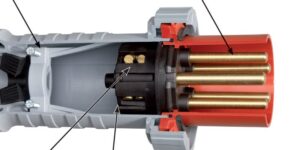Selecting the Right Industrial Dust Collector Manufacturer for Your Industrial Woodworking Application

To the companies in the woodwork industry, wood dust has always been an issue worth addressing in a timely manner because of its highly combustible components which can cause accidental fires and explosions. Many of these companies have been seeking help from their trusted industrial dust collector manufacturer to combat these threats, nonetheless. Like them, your company can benefit too.
Selecting the Right Industrial Dust Collector Manufacturer for Your Industrial Woodworking Application
Using the right dust collector for your industrial woodworking application is an efficient solution that not only helps the company financially but also enhances safety in the workplace. It can do wonders in managing dusts produced from cutting, sanding, sawing, and/or routing. Your industrial dust collector manufacturer may be offering a variety of dust collector types. In this case, your job is to make sure that the industrial dust collector manufacturer you will buy from can supply you with collectors that are best suited for the processes and types of wood your industry is frequently working on.
The Challenges in Filtering Wood Dusts
Industrial woodworking facilities use a variety of machines to process their woods. Consequently, these processes produce dust of different characteristics and sizes that can be pretty challenging to filter and collect especially with other factors at hand. For instance, if the dust is left unmanaged in a wet environment, it can get sticky and form clumps of material eventually. Certain woodworking processes can also produce abrasive and sharp-edged dusts or particles that can pose a serious threat to safety to the workers. And the most pressing challenge of all is how wood dusts are highly combustible. That means without proper solution to manage them, your facility can be exposed to threats of fire and explosion.
The Solutions to Filtration Challenges
If you have chosen the right industrial dust collector manufacturer, chances are you have been already presented the different types of dust control system for your wood dust collection:
- Baghouse. One great industrial dust collector that comes with long cloth bags as filters is called baghouse. Great at collecting dust on the surface especially the sticky and fibrous ones, baghouses remain efficient as they clean their bags using compressed air or fans. If maintained well, they can handle extremely heavy dust loading even in a high temperature environment.
On the downside, however, changing the bags that store the collected dust takes a lot of work. Averagely, one baghouse has around more than a hundred of bags. This makes the replacing a very long and inconvenient process considering the dirty and tight space where the replacement should be carried out. Furthermore, since one baghouse has a lot of bags, the space requirement is also relatively high.
- Cyclone: Cyclone is a type of collector that takes out clumps of sticky material or large pieces of wood. Because cyclones have no filters, they can practically deal with abrasive, sharp-edged, or other harsh materials. They are designed best for heavy, large particles but do not work as good in collecting lighter dusts. Because of this, they are usually installed on the first filtration stage where rougher materials are to be initially removed to prevent any potential damage on the cartridge or baghouse collector.
- Cartridge: In terms of collecting dusts in a smaller space, cartridge efficiently wins over the others. It is what a lot of woodworking companies use to collect fine sawdust from sanding dry wood. However, a lot other companies also use cartridge to collect other contaminants like adhesives, resins, and dye pigments.
Cyclones are best at controlling the release of such harmful contaminants into the air also because of their added after-filters.
Compared to others, cartridges have longer filter life because they are cleaned using pulses of compressed air.
Each of the above mentioned types has their own downsides. For instance, the bag house demands more maintenance labor, thus longer downtime, in replacing filter bags. Meanwhile, although cartridges take way lesser time and effort in replacing their filters, they are still not designed for large-sized particles.
Depending on your company’s requirements, you can use more than one type of dust collector. For instance, if you are into the production of large pieces of wood and fine sawdust, you can use the cyclone as a preliminary filter to drop the large materials out. Next, the airflow may go through the next collector, the cartridge, which is ace at filtering fine dusts. Meanwhile, for the fibrous and sticky dust remnants, filtration and collection are usually best covered by a baghouse collector.
To sum up, the factors that you must all consider in selecting a dust collector system include:
- the type of woodworking processes,
- the size of the particles to be collected,
- the dust’s abrasiveness,
- the wood material’s moisture content,
- the space, cost, temperature of, and the contaminants present in the working area,
- the amount of required dust loading; and,
- the maintenance and filter costs.
Controlling Dusts and Dust-Related Fire Risks in the Woodworking Industry with the Help of the Right Industrial Dust Collector Manufacturer
Since wood dusts are highly combustible, the likelihood of them causing accidental explosions or fires is high. Thus, there is a clear need for a system that can ensure calm and safety not just of the working place but more importantly of the workers. If you are in the hands of the right industrial dust collector manufacturer, then most likely this has already been taken care of.
Fine dusts can easily accumulate or spread around work areas too. Nonetheless, if the dust collector system is installed strategically, then it will be able to capture dusts as early as from their source.
Regardless of the type of dust collection system you are eyeing on for your facility, on top of your list of criteria is that it should be compliant with NFPA standards for fire and explosion safety.
As reputable industrial dust collector manufacturers are experts in the dust collection area, one great way there is to find out which dust collector type is best suited for your environment is to seek help from them.






